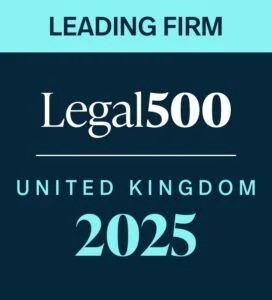The main attraction of the expert determination mechanism, which commercial parties often insert into the dispute resolution clauses of their contracts, is that an expert’s decision is not going to be subject to any appeal. It is going to be final, so that the parties can then part ways or possibly continue with the project which gave rise to the dispute in the first place.
To achieve this aim as far as possible, parties will often agree to the standard wording of an Expert Determination Clause that the expert determination shall, in the absence of manifest error, be final and binding and not subject to appeal. Sometimes they will also insert that that determination will be final and binding in the absence of fraud, although this is not strictly necessary because any determination secured by fraud would not be upheld by the court. In WH Holding Ltd v E20 Stadium LLP EWHC 140 (Comm), Paul Mitchell KC (sitting as a Deputy High Court Judge) had to consider what a party challenging an expert determination on the basis of manifest error must establish in order to secure a declaration from the court that the expert determination is not final and binding.
What were the facts of the WH Holding case?
WH Holding Ltd, the holding company for West Ham United football club, had a long-term agreement with E20 Stadium LLP, the operator of the London Stadium. This agreement included a clause requiring WH Holding to pay a “Stadium Premium Amount” if certain shareholders sold their stake in the club.
In 2021, several share sales and a put and call option were executed involving a third-party investor. E20 claimed these triggered the obligation to pay £3.6 million. WH Holding disagreed, and the matter was referred to an expert. The agreement’s Expert Determination Clause provided that the expert's decision would be final and binding unless there was a manifest error.
What is the legal test for manifest error?
The courts have set a high bar for proving manifest error. In WH Holding Ltd v E20 Stadium LLP, the judge applied the definition from Veba Oil Supply & Trading GmbH v Petrotrade Inc [2001] EWCA Civ 1832, where a manifest error was described as an “oversight or blunder so obvious and obviously capable of affecting the determination as to admit of no difference of opinion.”
This means that the mistake must be both clear and significant. It is not enough to show that the expert got it wrong or took a different view. The error must be obvious and one that clearly impacts the result.
Did the expert make a manifest error?
Yes. The court found two clear mistakes. First, the expert wrongly treated the share sales and the option agreement as a single Qualifying Transaction, despite involving different parties and terms. Second, he used a blended valuation drawn from two separate methods, which the agreement did not permit.
These errors were obvious from the contract and had a material effect on the outcome. The High Court held that the determination was not final and binding due to manifest error.
How 3CS can help
Expert determination can be a useful tool in commercial contracts, but only if the clause is well-drafted and properly understood. At 3CS, we help clients structure effective dispute resolution provisions and advise on challenges to expert decisions when appropriate. If you need support with commercial dispute resolution, feel free to contact us for legal guidance tailored to the needs of your business.


















